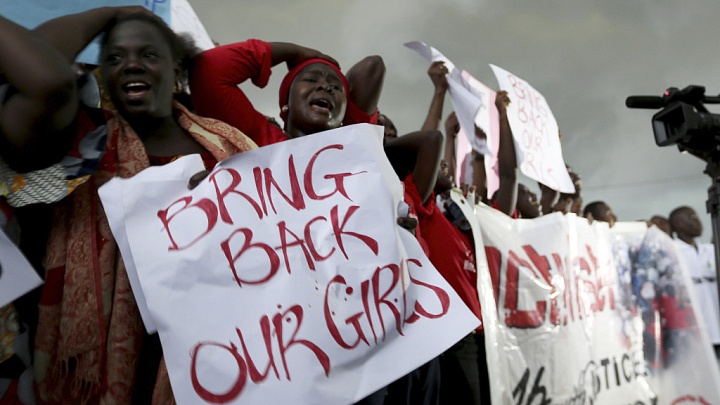
The en mass abduction of almost 300 Nigerian schoolgirls has gripped the world, even sparking a social media campaign to #BringBackOurGirls. The kidnapping has catapulted the Nigerian terrorist group Boko Haram to instant fame. The group has terrorized Nigerian families facing the difficult decision of whether to send their daughters to school and risk being kidnapped or trafficked, or whether to forgo their future and keep them at home. Boko Haram has purposefully employed sexual violence – it has threatened to sell off the girls as brides – not only to achieve a culture of fear but also to internationalize its conflict and make demands on the Nigerian government, including prisoner swaps and bribes. Although active before this attack by bombing churches, bus stops, and targeting civilians, Boko Haram probably never would have imagined its actions would inspire a plea by First Lady Michelle Obama. All of which begs the question: Is sexual violence an effective tool?
From South Sudan to Sri Lanka, the use of sexual violence has become pervasive in recent conflicts. It is often thought that sexual violence and rape are by-products of conflict. But in the late twentieth-century, we began to see rape as an effective military tactic in order to humiliate and terrorize a population. “In modern conflicts, rape is the front line of conflict,” Margot Wallström, the special representative to the UN secretary-general for sexual violence, has said. “It is not a side effect.” Sexual violence is a useful tactic because it not only affects the victim, but the entire community. Yet it comes with serious physical, psychological, emotional, and societal effects that become engrained into generations that deal with this wartime tactic. The psychological effects of being raped or sexually assaulted can vary. Often the victim experiences stigma, shame, PTSD, guilt, hostility, denial, depression, isolation, fear, panic attacks, flashbacks, and sleeping disorders. Often victims are shunned from the community or are criminally punished themselves.
Both men and women can be raped, but women are most often the targets. UNICEF reports that more than 1,000 women were raped each month during the decades-long conflict in the Democratic Republic of the Congo. Approximately 90 percent of women over the age of three in Liberia have been victims of sexual assault, while in Sierra Leone, an estimated 50,000 64,000 women and girls were raped during its civil war in the 1990s. In West Africa, it was also common to take “bush wives,” who would be kidnapped, gang-raped, and then “saved” by a man who would agree to marry them. These women would then be used as sex slaves for these men. A similar dynamic is playing itself out with the kidnapped Nigerian schoolgirls. Boko Haram has threatened to sell them off as wives, almost certainly to be used as sex slaves once married.
What causes a group to use mass sexual violence as a tool? Scholars such as Harvard’s Dara Kay Cohenbelieve it can be used as a socialization tool and ca
